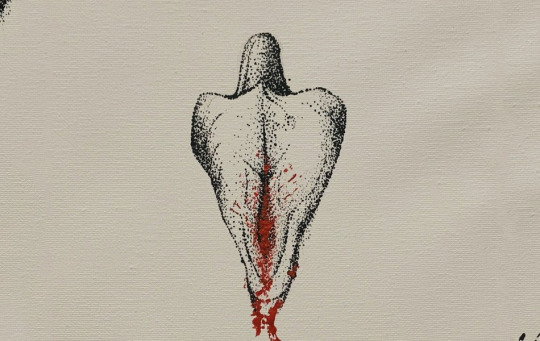#MenstrualRights
Explore tagged Tumblr posts
Text
MENSTRUATION HISTORY

Menstruation, the regular discharge of blood and mucosal tissue from the inner lining of the uterus, has been a fundamental aspect of human biology and reproductive health throughout history. While the biological process itself remains constant, the social, cultural, and medical attitudes towards menstruation have varied significantly across different cultures and time periods. Here is an overview of how menstruation has been perceived and managed in history:
Ancient Cultures:
In many ancient cultures, menstruation was often associated with concepts of fertility and power. In some societies, menstruating women were even considered sacred due to their connection with the life-giving force of reproduction. For example, in ancient Egypt, menstrual blood was believed to have protective and healing properties.
Religious and Superstitious Beliefs:
Some societies held superstitious beliefs about menstruation. Women were often isolated or considered impure during their periods. In Hinduism, for instance, menstruating women were historically kept separate from others and considered ritually impure. Similar practices were found in various other cultures and religions.
Medical Understanding and Misunderstanding:
Throughout much of history, there was limited understanding of the biological processes involved in menstruation. Many societies attributed menstrual symptoms to mysterious causes, and various remedies and rituals were practiced to alleviate discomfort. It wasn't until more recent centuries that a more accurate understanding of the menstrual cycle emerged.
19th Century:
The 19th century marked a significant period of change in how menstruation was understood. Medical knowledge about the female reproductive system advanced, leading to the development of more accurate explanations for menstruation. However, the topic was still surrounded by taboos, and open discussions were uncommon.
20th Century:
Menstruation started to be viewed more openly as medical advancements continued. The invention and widespread use of disposable sanitary products, like tampons and pads, in the mid-20th century significantly transformed how menstruating individuals managed their periods. Menstrual hygiene became a focus, and education about menstruation started to become more common.
Feminist Movement :
In the latter half of the 20th century, feminist movements played a crucial role in destigmatizing menstruation. Activists advocated for open conversations about periods, challenging the shame and secrecy that had surrounded the topic for centuries. This led to greater awareness, improved menstrual education, and initiatives to make menstrual products more accessible.
Contemporary Attitudes:
Today, attitudes toward menstruation vary widely across cultures and regions. While many societies have made strides in normalizing conversations about periods and providing better menstrual education, there are still places where stigma and misinformation persist. Additionally, discussions around menstrual equity, access to affordable menstrual products, and the impact of menstruation on various aspects of life, such as education and work, continue to be important topics.
In conclusion, the history of menstruation reflects the complex interplay of cultural, religious, medical, and social factors. Over time, there has been a gradual shift from superstition and secrecy to greater understanding and acceptance, although challenges related to stigma and inequity still persist in various parts of the world.
#MenstruationMatters#PeriodPositive#PeriodPower#MenstrualHealth#PeriodAwareness#PeriodEducation#KnowYourFlow#PeriodProud#MenstrualHistory#PeriodCulture#PeriodStories#MenstrualRights#PeriodEquality#PeriodEmpowerment#PeriodPoetry#MenstrualMyths#PeriodFacts#HistoricalPeriods#MenstrualRevolution#PeriodArt
1 note
·
View note
Photo

Join us for an elaborate discourse on this important issue and help us devise policy solutions, which will be collated and sent to the relevant Ministry. For details, check this link: http://bit.ly/2yo9YmX #CivicArchitects #RightToMenstrualHealth #Menstruation #MenstrualHygiene #MenstrualRights #PublicPolicy #PolicyFormulation https://www.instagram.com/p/BpRAIIkH75X/?utm_source=ig_tumblr_share&igshid=14n79fxyqus73
#civicarchitects#righttomenstrualhealth#menstruation#menstrualhygiene#menstrualrights#publicpolicy#policyformulation
0 notes
Photo

A Swimmer's 'Period' Comment Breaks Taboos In Sports — And In China
Fu Yuanhui, a Chinese swimmer at the Rio Olympics, made headlines this week for telling the world she was on her period.
On Sunday, when she finished fourth in the women's 4x100 meter medley relay, an interviewer found her doubled over and grimacing. She asked Fu if she was in pain.
"Actually, my period started last night, so I'm feeling pretty weak and really tired," Fu told the interviewer in Mandarin, according to an English-subtitled video on Shanghai Expat's YouTube channel. "But this isn't an excuse. At the end of the day, I just didn't swim very well."
The interview turned Fu into an overnight sensation on Weibo, a Chinese social media site, reported the New York Times: She broke the silence around menstruation in sports.
According to The Guardian, one commenter wrote, "It is a normal physiological phenomenon, so why can't we mention it? Fu Yuanhui is awesome!"
The swimmer's remark also shed light on shifting Chinese attitudes toward periods.
"It tells us a lot about what's going on in China today," says Susan Greenhalgh, a professor who focuses on Chinese society at Harvard University's department of anthropology. "The vocal empowerment of young people and the fact that gender issues are coming to the fore, it's exciting."
Read the full story here.
3K notes
·
View notes